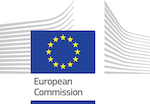
This Anti-Corruption Helpdesk brief was produced in response to a query from the European Commission. The Anti-Corruption Helpdesk is operated by Transparency International and funded by the European Union.
Query
Without limiting the analysis to the visible part, (the “envelopes” culture), which are the main areas of corruption in the health sector and its impact on the efficiency of the sector? What are the main causes for this? A number of measures have been taken by the government to address corruption, are they sufficient to address corruption, in particular in the health sector? Would any additional measures specific to the sector be required?
CONTENT
1. Corruption in the health sector in Vietnam: forms, impact and causes
2. The government’s efforts to fight corruption in the health sector
3. References
CAVEAT
There are very few assessments with regards to the efforts of the government in combating corruption in the health sector in Vietnam.
SUMMARY
In Vietnam, corruption in the health sector is considered a serious problem by both the government and citizens at large. The country’s health system is particularly susceptible to corruption due to uncertainty, asymmetry of information between health officials and patients, and conflicts of interest between health officials and private companies.
Corruption manifests itself in many forms: it can involve political influence in defining health and drug policy; bribery to influence procurement processes for construction of health facilities or purchase of equipment/supplies and pharmaceuticals; fraudulent billing for services provided; and over-provision of services; selling and buying positions; absenteeism; and informal payments, among others. It has serious consequences in terms of access, quality, equity and effectiveness of health care services.
The government has designed a series of reforms directly aimed at improving the country’s health governance framework. While assessments of the impact of these reforms are still lacking, the government, experts and civil society organisations have acknowledged that more needs to be done in order to reduce corruption and improve health delivery in the country, including improvements in internal and external controls, simplification of administrative rules, establishment of conflicts of interest law, and engagement of citizens.
Authors
Maira Martini, Transparency International, [email protected]Reviewers
Marie Chêne, Transparency International; Dr. Finn Heinrich, Transparency InternationalDate
04/02/2013
